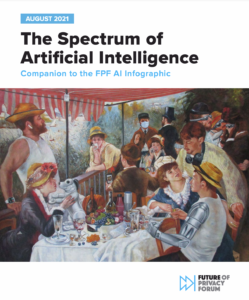Google Glasses and the Do Not See List?
Release of new details about the Google Glass project deservedly is getting great attention from a range of tech and privacy writers. The idea of smart glasses is familiar to fans of Vernor Vinge’s book Rainbow’s End, which won the 2007 Hugo Award for best science fiction novel of the year. It’s safe to say that most people, however, have not deeply imagined what it will be like to have the equivalent of a computer screen super-imposed on their vision as they go through daily life.
Reporters have been asking whether to foresee advertisements on the smart glasses of the near future. My assumption is that we will see ads. Ads exist on television, radio, magazines, smartphones, and the Internet, so they will almost certainly exist on smart glasses.
Will there also be privacy debates about those advertisements? Yes, of course. Marketing companies will emphasize that the ads are incredibly useful – you look at the restaurant when walking down the street and a coupon pops up. Privacy advocates will emphasize the intrusiveness of seeing the world through a series of distracting and perhaps-unwanted ads. Advocates are also likely to express concern about the power of advertising to literally shape a person’s “world view” – to alter what a person sees moment-by-moment when traveling through life.
As the privacy debates commence, I think we can even announce a likely title for a regulatory debate about smart glasses – the “Do Not See List.” We have had “Do Not Call” for phones and “Do Not Track” for web surfing. Should individuals have the right to opt out of targeted ads on their glasses? It will be overwhelmingly tempting to call the privacy debate about smart glasses the “Do Not See” debate. I hereby give in to the temptation early.
For me, it is unbelievably exciting to imagine the range of new applications that will emerge to see the world differently. It is hard to predict the killer aps for this space, except to predict that there will be many of them. (As a professor, I immediately think how wonderful it would be to get prompts of student names when I forget them.) It is easy to predict, though, that privacy and other tech experts will debate long and hard about who gets to affect what I see, as I look out through my new pair of smart glasses.
-Peter Swire



